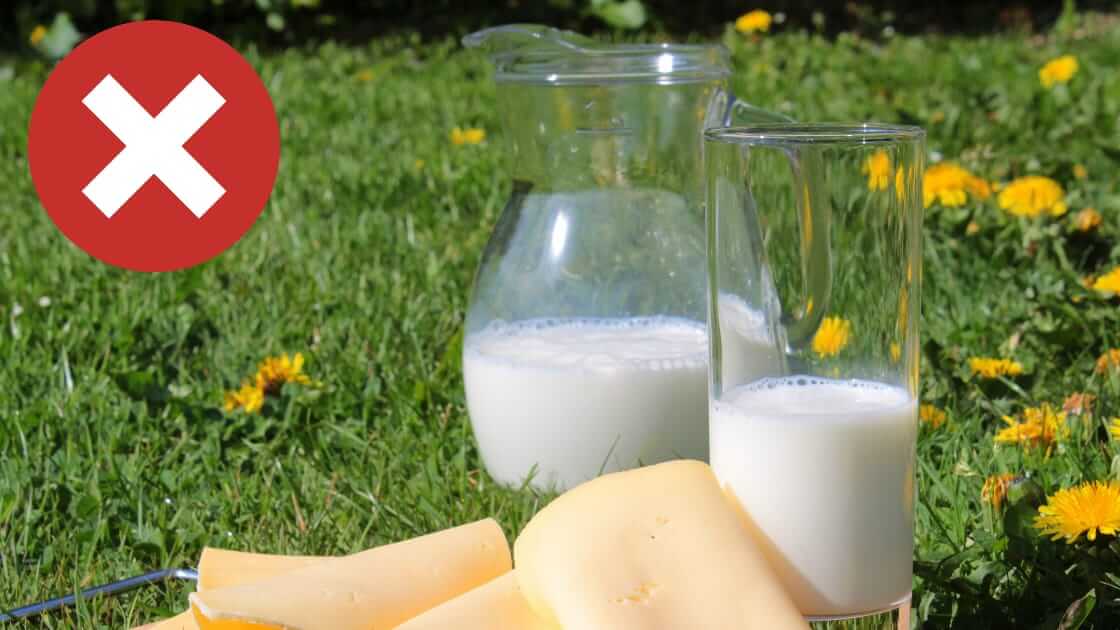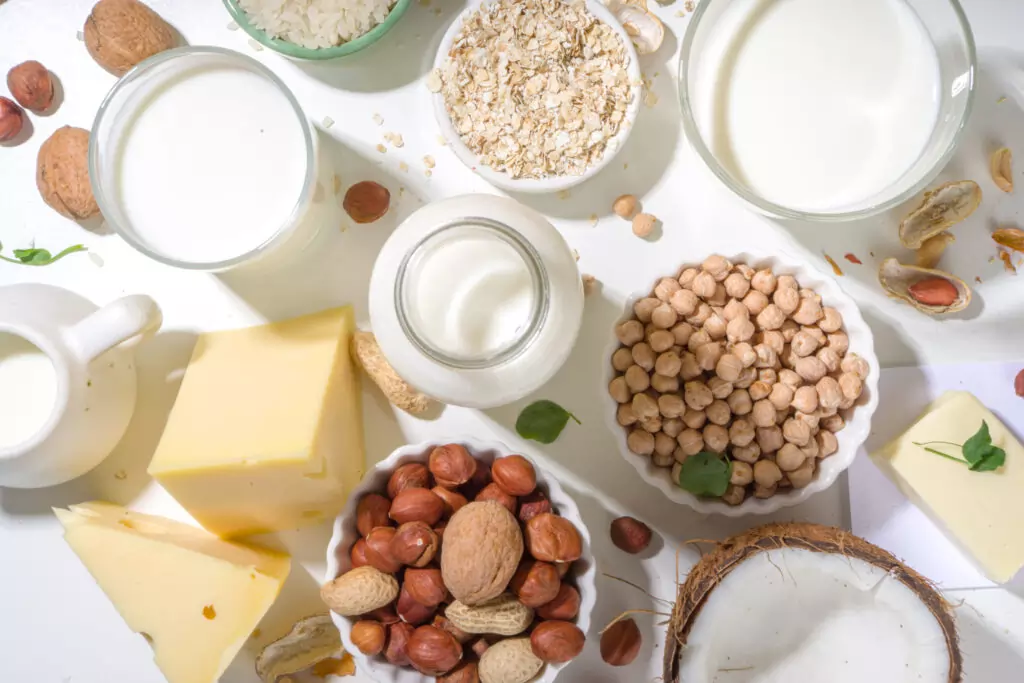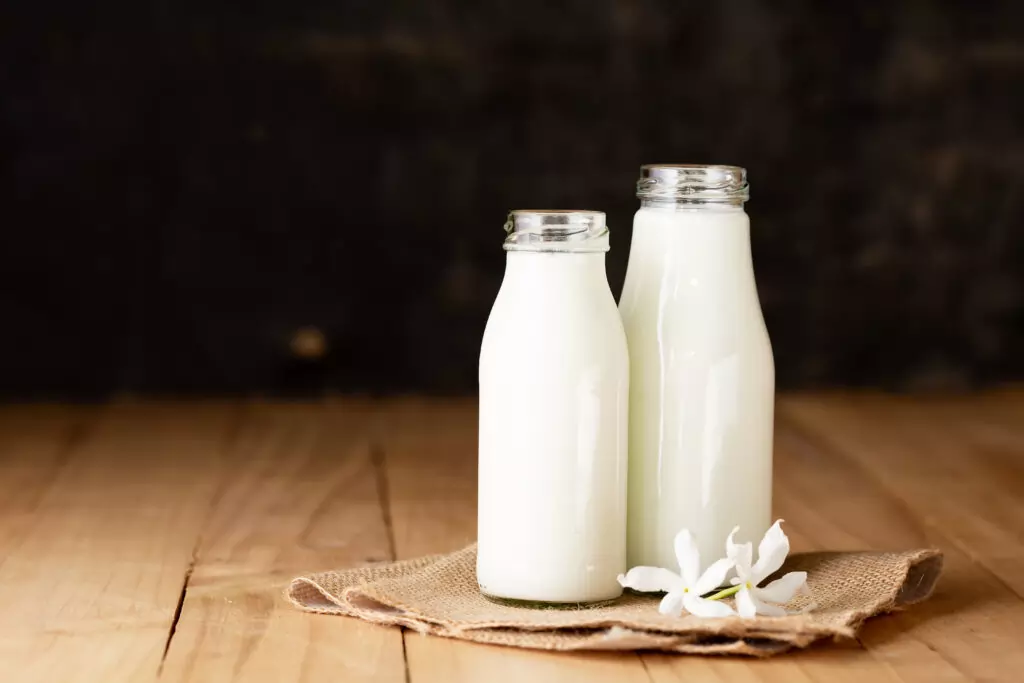
Recipes What is Lactose? Lactose is milk sugar found in milk and milk products, such as yogurt, cheese, ice cream,…
Have you ever noticed that the consumption of dairy products is always followed by diarrhoea, bloating, and feeling of uneasiness? These symptoms are most likely that of lactose intolerance.
When a body cannot digest the milk sugar or lactose present in a dairy product, the body is said to be lactose intolerant. This indigestion occurs due to the lack of a gut enzyme called lactase present in the small intestine. This enzyme helps to break down lactose into a simpler sugar. The lack of the same leads to fermentation of the gut leading to excessive gas, cramps, and diarrhoea.
The obvious solution to this problem is avoiding milk and dairy products in your food. However, such dietary eliminations over time might lead to calcium and vitamin D deficiency, often leading to osteoporosis and other bone diseases.
But as they say, there is always a solution to every problem. Nature is abundant with its numerous options of substitutes for dairy milk and dairy products. So here we have a list of options you can choose from to include in your diet if you are lactose intolerant.


The dairy milk substitutes, also known as plant milk, are extracted from seeds, fruits, and nuts with the same consistency and texture as dairy milk. The various varieties of nut milk are easy to make and are also readily available in the market. Apart from being a substitute for dairy milk, the following options are fully packed with nutrition with various kinds of vitamins and minerals.
So, stop worrying about nutrition problems due to lactose intolerance and indulge in a delicious way to a healthy diet with milk substitutes.

Soy Milk: A plant-based beverage, Soy milk is extracted from natural Soybeans. It is one of the most common and easily available substitutes for dairy milk. Readily available in most grocery stores, it tastes awesome in tea, coffee, and smoothies. Also, tofu (a substitute for paneer) prepared from Soy milk is a good source of protein and calcium that you can use in many dishes instead of paneer.
Coconut Milk: Another kind of plant extract is coconut milk. It is prepared from the white soft fleshy part in the coconut. Packed with rich vitamins, minerals and good fat, coconut milk is soft, creamy, and naturally sweet. There are various brands of coconut milk readily available in the market. It can also be prepared at home using simple recipes.
Almond Milk: Another wonderful dairy replacement is Almond Milk. Again, a full protein pack, the awesome nutty flavour of almond milk goes well with all kinds of hot and cold beverages. Many branded almond milk are available in the market in numerous flavours.
Peanut Milk: While peanut is well known as a poor man’s nut, its milk is an ultimate protein pack. It also acts as a great substitute for curd, curd dishes and buttermilk. It is also a great ingredient for smoothies.
Cashew Milk: Made from high-quality cashews and water, it tastes heavenly with hot and cold beverages like tea and coffee. Another excellent use of cashew milk is it goes well with various sweet and savoury dishes. A great medium to boost overall immunity and beneficial, especially for skin, eyes, and heart.
Oats Milk: Another plant-based milk alternative is Oats Milk. This milk is free from lactose, nuts and soy and is a great substitute for people with various allergies. Also, vegan-friendly oats milk is abundant in vitamin B, keeps blood cholesterol levels low, and is great for bone health. Most importantly, oats milk is easy to make at home with simple ingredients. Oat’s milk goes well with hot beverages like coffee and becomes thick and creamy when churned well.
Macadamia Milk: Macadamia milk is new in the list of substitutes for dairy milk made from macadamia nuts and water. It is growing to become popular due to its rich and creamy texture, which tastes sumptuous with coffee and smoothies. It is also called low-calorie milk since it has half the fat of cow’s milk. With a low carbohydrate content, macadamia milk is an excellent choice for those on a diet and those with diabetes.
Hemp Milk: Hemp milk is prepared from the seeds of a plant known as hemp plant or Cannabis sativa. This plant is popular to make the drug cannabis, also known as marijuana. With a thin watery texture, hemp milk is mildly sweet with a touch of nutty taste. It is an excellent option for vegans and lactose intolerance as it provides essential amino acids, protein, and low carbohydrates.
Quinoa Milk: Quinoa is a protein-rich, and gluten-free food grain used to make numerous dishes. Due to its nutrition it has come to be known as a superfood around the world. Quinoa milk is prepared from water and quinoa. It has a slightly sweet and nutty flavour used in cereals and porridge. Quinoa milk is made from water, and quinoa, an edible seed commonly prepared and consumed as a grain.

Lactose intolerance can occur at any age. A disorder like Crohn’s disease or gastroenteritis could set it off. As a result, your small intestine may produce insufficient amounts of lactase.
Lactose intolerance affects people of all ages. Crohn’s disease or gastroenteritis may be the cause. This may cause an insufficient supply of lactase in your small intestine.

Recipes What is Lactose? Lactose is milk sugar found in milk and milk products, such as yogurt, cheese, ice cream,…